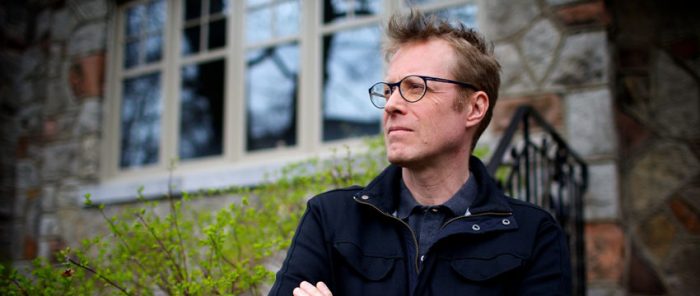Source: McGill Alumni News
McGill psychiatry professor Alain Brunet has received international attention for his innovative approach to treating post-traumatic stress disorder (PTSD). His techniques have been proven to be beneficial for the victims of terror attacks and violent crimes. He is now leading a multi-country effort to see if his methods can help people who have experienced trauma related to the global outbreak of COVID-19. The pandemic may be leaving psychological scars all over the world.
“This study began as a question we asked in our lab; is the pandemic a stressful event or a traumatic one?” says Brunet, a researcher based at the Douglas Research Centre.
“As we monitored events around us and around the world, we became convinced that this would be a traumatic event for an important percentage of the population.”
Brunet and his team will be training psychologists in five countries – Canada, the U.S., China, Italy and France – to treat volunteers from those hard-hit nations. The first step is an online survey of 1,000 people from each country, asking them about their exposure to the crisis and levels of trauma.
“I think this will help us learn more about the effects of pandemics, and provide valuable international data about how people react in different parts of the world. This is important information for planning services, and it’s vital for psychiatrists to understand that this is a traumatic event, and people should be treated accordingly.”
Brunet has helped expand the definition of PTSD, which most people associate with soldiers and accident or crime victims. Brunet says that it is not just an individual condition, but can also be a collective one. For example, after the terrorist attacks in 2015, he went to France to treat survivors and train professionals in his method. That study is ongoing, and the results so far have shown that Brunet’s method can be administered on a large scale.
Known as reconsolidation therapy, it involves asking people to recall a traumatic memory an hour after taking propranolol, a beta blocker which interferes with the process of storing memories with emotional content. After someone recalls a memory, it is then reconsolidated – stored once again in the brain. With propranolol, that process occurs without the same degree of painful intensity.
“Propranolol degrades the memory, preventing it from being restored adequately, thus without a strong emotional content.”
Appropriately enough for this pandemic, Brunet’s team “will offer treatment, remotely and on-line, for participants who are struggling, and suffering from trauma. This will be a first for us; the pandemic has left us more or less obliged to move to teletherapy. But if we show that we can effectively treat people at long distance, that will be a big leap forward.” Brunet’s team will also remotely train mental health professionals in the five participating countries.
Aside from world wars, Brunet believes no other event but a pandemic could have such a worldwide emotional impact.
“This may be the most widespread trauma since World War II. I expect this to cause more PTSD than the Vietnam War or the 9/11 terrorist attacks.”
Besides PTSD, Brunet’s team is treating adjustment disorder resulting from the crisis.
“This is a disorder triggered by highly stressful situations – as opposed to trauma, which typically involves a danger to one’s life. But symptoms can be similar, and can include frequent or recurrent nightmares, insomnia, intrusive thoughts and panic attacks.”
Brunet estimates that five to ten per cent of the population in hard-hit countries could suffer from one or the other as a result of the pandemic. Of these, “about half will experience spontaneous remission in one year. The other half will not have remission without help. So we typically wait three to six months to see who is getting better and who needs our help.”
He notes that the impact of a pandemic is multi-faceted.
“There are a lot of scenarios in which people can suffer trauma in this kind of crisis, including losing your job, working in a hospital where there is an outbreak, or going to the E.R. and not knowing if you will see your family again. So the first stage of our [project] is to document these scenarios, and the second is to offer treatment.”
June 29 2020

